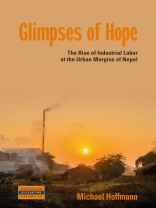Over the last decade, Nepal has witnessed significant urban growth and an expanding urban middle class. Glimpses of Hope tells the story of the people who enable some of the middle-class consumer practices in urban Nepal. The book focuses on workers in areas such as modern food-processing, water-bottling, housebuilding, and sand-mining industries and explores how workers see such forms of work, where union organization can help, and how work opportunities emerge along lines of gender and ethnicity. Although global labor relations have been mostly in decline for decades, this ethnography offers insights and glimpses of hope in terms of labor dynamics and the opportunities various jobs may afford.
Содержание
Acknowledgements
A Note on the Text
Map of Nepal
Introduction: The Noodle King
Part I: Work at the Margins of Nepalgunj
Chapter 1. From Casual to Permanent Work in a Food Factory
Chapter 2. From Bonded to Industrial Labor in a Food Factory
Chapter 3. New Forms of Spirituality in a Modern Food Factory
Part II: Work at the Margins of Pokhara
Chapter 4. Work, Precarity, and Militant Unionism in an Industrial Area
Chapter 5. Gendered Divisions of Work in the Water Bottling Plants
Chapter 6. Class, Ethnicity, and Labor Mobilization in the Construction Industry
Chapter 7. Mafia, Labor, and Shamanism in a Sand Mine
Conclusion: Glimpses of Hope
Glossary
References
Index
Об авторе
Michael Hoffmann is a Research Fellow at the Center for Interdisciplinary Regional Studies (ZIRS) at the Martin-Luther University Halle-Wittenberg in Germany. Previously, he worked as a senior research fellow at Humboldt University in Berlin, as a post-doc fellow at the Institute for Cultural and Social Anthropology in Cologne and the Max Planck Institute for Social Anthropology in Halle, Germany.












